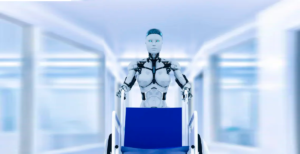Technological advances improve the quality of life and medical care.
Artificial Intelligence (AI) has emerged as a transformative force in medicine, offering hope and possibilities for improving the quality of life for people with disabilities. One of the most exciting fields is the development of mobility assistance systems, where AI plays a crucial role in creating mind-controlled exoskeletons. In this article, we’ll explore how AI is revolutionizing medical care for people with disabilities, focusing on cases of mind-controlled exoskeletons that are changing lives.
One of the most notable cases is the “Mindwalker” project from the Delft University of Technology in the Netherlands. This project uses AI to develop an exoskeleton that can be controlled by the mind, allowing people with spinal cord injuries to regain the ability to walk independently. By interpreting the user’s brain signals, the exoskeleton translates thoughts into physical movements, providing new hope to those who were previously confined to a wheelchair.
Another example is the “HAL” project by the Japanese company Cyberdyne. This robotic exoskeleton uses AI to detect electrical signals sent from the brain to the muscles, enabling people with disabilities to perform physical movements such as walking, lifting objects, and climbing stairs. This breakthrough is transforming the lives of people with disabilities by providing them with greater autonomy and mobility.
Artificial Intelligence is playing an increasingly important role in optimizing medical care for people with disabilities, especially in the field of assisted mobility. Cases of mind-controlled exoskeletons are just one example of how AI is transforming medicine and improving the quality of life for people with disabilities worldwide. As this technology advances, we’ll likely see even more life-changing innovations that provide new hope to those facing mobility challenges.





